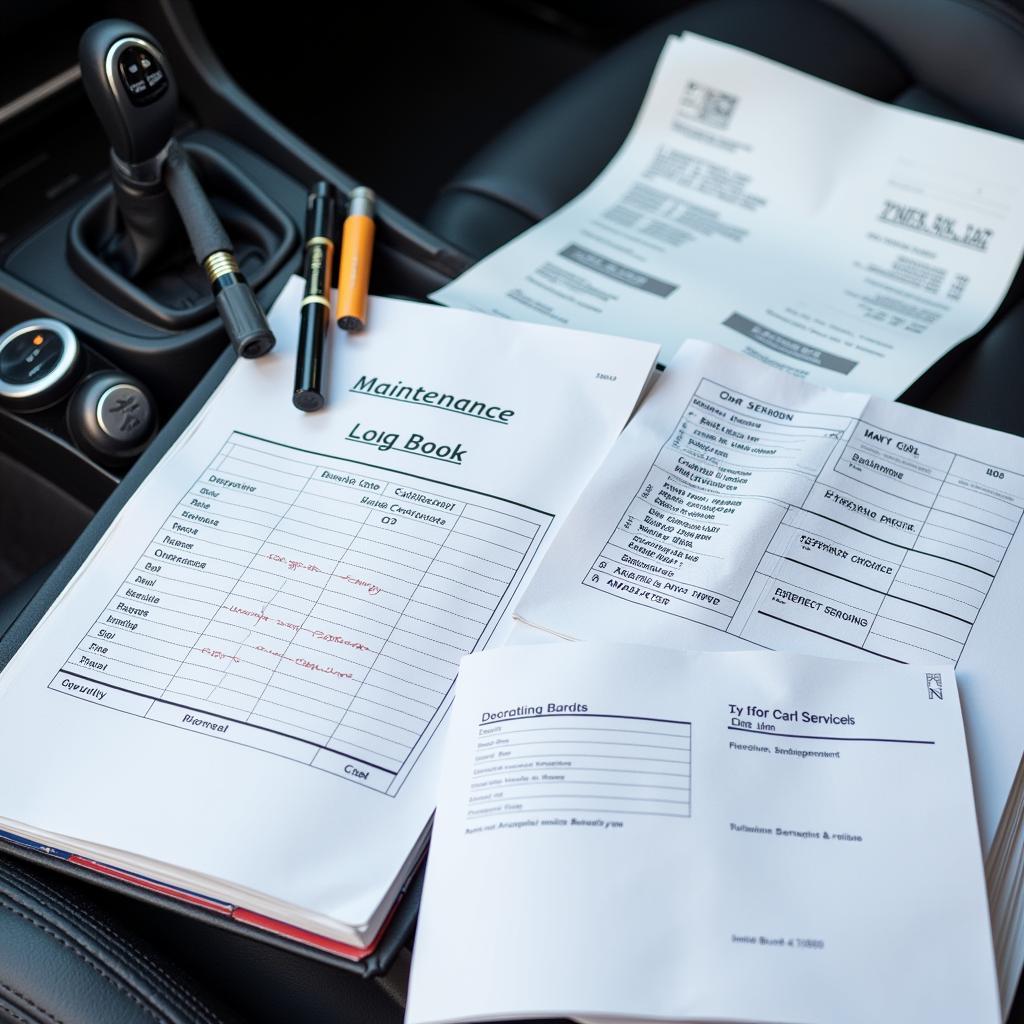Car maintenance is crucial for ensuring vehicle longevity, safety, and optimal performance. Whether you’re a seasoned car enthusiast or a new driver, understanding the basics of car maintenance can save you money, prevent breakdowns, and enhance your overall driving experience. This guide will provide you with a comprehensive Introduction To Car Maintenance, covering everything from routine checks to more complex repairs.
After this brief introduction, we’ll dive deeper into the essential aspects of car maintenance. Learn more about how to find a reputable service provider for your high-end vehicle with our guide to the best luxury car maintenance.
Why is Car Maintenance Important?
Regular car maintenance offers numerous benefits. It can significantly extend the lifespan of your vehicle by preventing premature wear and tear. Well-maintained cars are also safer, as regular checks can identify potential safety hazards before they become serious problems. Moreover, proper maintenance can improve fuel efficiency, saving you money at the pump. Finally, a well-maintained car retains its value better, which is an important factor if you plan to sell or trade it in the future.
What Does Car Maintenance Entail?
Car maintenance encompasses a wide range of tasks, from simple checks to more complex procedures. Some essential maintenance tasks include:
- Regular fluid checks and changes: This includes engine oil, coolant, brake fluid, power steering fluid, and transmission fluid.
- Tire maintenance: Checking tire pressure, rotating tires, and ensuring proper alignment.
- Brake inspections and replacements: Ensuring the braking system is functioning correctly.
- Battery maintenance: Checking battery health and replacing it when necessary.
- Air filter replacement: Ensuring clean air intake for optimal engine performance.
- Spark plug replacement: Maintaining efficient combustion in the engine.
- Belt and hose inspections: Checking for wear and tear and replacing them as needed.
How Often Should I Maintain My Car?
The frequency of car maintenance depends on various factors, including the make and model of your car, your driving habits, and the climate you live in. Refer to your car’s owner’s manual for specific maintenance schedules recommended by the manufacturer. However, a general rule of thumb is to perform basic checks, such as tire pressure and fluid levels, at least once a month. More extensive maintenance, such as oil changes and filter replacements, should be done according to the manufacturer’s recommendations or as indicated by your car’s condition.
Are you curious about vehicles that require more frequent attention? Check out our high maintenance cars list for more insights.
Performing Basic Car Maintenance at Home
Several basic car maintenance tasks can be performed at home with minimal tools and experience. These include:
- Checking tire pressure: Use a tire pressure gauge to ensure your tires are inflated to the correct pressure.
- Checking fluid levels: Locate the dipsticks and reservoirs for various fluids and check their levels.
- Replacing wiper blades: Worn-out wiper blades can impair visibility, so replace them regularly.
- Checking and cleaning battery terminals: Corrosion on battery terminals can affect the car’s starting ability.
For more complex tasks, it’s recommended to take your car to a qualified mechanic. Finding a reliable mechanic can be challenging. However, resources like “smart car maintenance near me” can help you locate qualified professionals in your area.
Keeping Records of Your Car Maintenance
Maintaining a detailed record of your car’s maintenance history is essential. This record can help you track maintenance schedules, identify potential issues, and provide valuable information when selling your car. A well-documented car maintenance history can significantly increase your car’s resale value.
Choosing the Right Car for Easy Maintenance
Some cars are inherently easier to maintain than others. Factors like accessibility of parts, simplicity of design, and reliability can influence the ease of maintenance. If low maintenance is a priority for you, research different car models and consider consulting our guide on the best maintenance car.
 Car Maintenance Records: Logbook and Receipts
Car Maintenance Records: Logbook and Receipts
“Regular maintenance is not just about keeping your car running; it’s about ensuring your safety and preserving your investment,” says John Davis, a seasoned automotive technician with over 20 years of experience.
Introduction to Car Maintenance: Conclusion
In conclusion, introduction to car maintenance involves understanding the importance of regular upkeep for your vehicle’s longevity, performance, and safety. By following the tips and guidelines outlined in this guide, you can keep your car in top condition and avoid costly repairs down the road. Remember, proactive car maintenance is an investment that pays off in the long run.
“Preventive maintenance is always cheaper than reactive repairs,” adds Sarah Miller, a certified automotive instructor.
For any further assistance or inquiries regarding car maintenance, feel free to connect with us at AutoTipPro. You can reach us at +1 (641) 206-8880 or visit our office at 500 N St Mary’s St, San Antonio, TX 78205, United States.




Leave a Reply